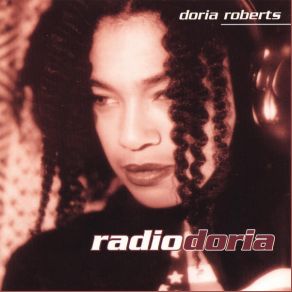Radio Doria
Download links and information about Radio Doria by Doria Roberts. This album was released in 2000 and it belongs to Rock, Folk Rock, Songwriter/Lyricist, Psychedelic genres. It contains 14 tracks with total duration of 49:25 minutes.

|
|
|---|---|
| Artist: | Doria Roberts |
| Release date: | 2000 |
| Genre: | Rock, Folk Rock, Songwriter/Lyricist, Psychedelic |
| Tracks: | 14 |
| Duration: | 49:25 |
| Buy it NOW at: | |
| Buy on iTunes $9.99 | |
| Buy on Amazon $8.99 | |
Tracks
[Edit]| No. | Title | Length |
|---|---|---|
| 1. | Radio Intro | 0:13 |
| 2. | Iguana | 2:56 |
| 3. | Death of a Day | 3:52 |
| 4. | What's the Matter? | 2:52 |
| 5. | Little Martyr | 5:00 |
| 6. | Last Man | 2:30 |
| 7. | Radio Interlude | 0:09 |
| 8. | What I Said | 5:51 |
| 9. | Lost | 0:16 |
| 10. | Every Dog | 4:12 |
| 11. | Another Man Done Gone | 2:03 |
| 12. | American Dream | 4:00 |
| 13. | Pledge (featuring Traditional) | 0:19 |
| 14. | Flesh and Emotion | 15:12 |
Details
[Edit]Radio Doria was released on Election Day 2000 — a day of indecision, fumbling, suspicion, and rumor. Judging by the messages in her songs, Doria Roberts was not altogether pleased with the eventual outcome. Here, she covers a wide range of issues from homelessness and domestic violence to prejudice and gun control. Many of the songs were inspired by specific incidents, lending that much more credibility to her outrage. Although it weighs a bit toward heavy-handed, Radio Doria is an admirable attempt to be heard. Roberts shows integrity as a human and an artist in the way she leads her fiercely independent life and career. Obviously her songs should be no different. Perhaps because she's a little more angry this time out, Radio Doria lacks the instantly catchy hooks from her previous release, Restoration. This is not a happy-in-love album, although the songs certainly hold some personal meaning for her. The main highlight of the offering is an African-American blues tune that was recorded by Alan Lomax as far back as the late '30s and by Odetta in 1956. Roberts breaks "Another Man Done Gone" down to its core, using only her soulful voice and a leg slap to keep time. It's a highly effective piece that feels like the cornerstone for the writing of everything else. It is also a marker to see just how far people have come, which, by Roberts' estimation, might not be that far.